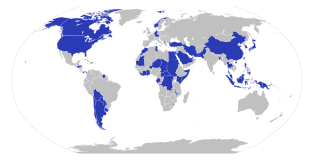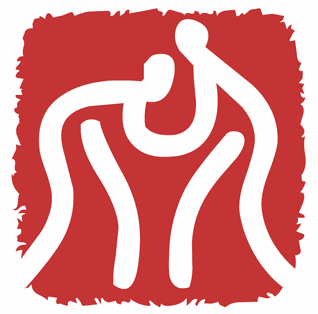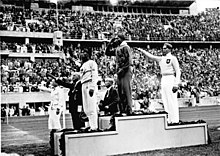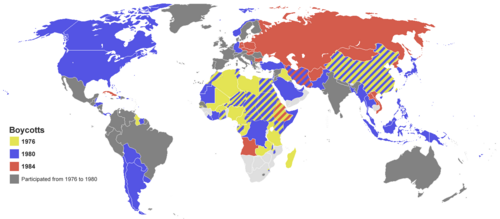
The Summer Olympic Games, also known as the Games of the Olympiad, and often referred to as the Summer Olympics, is a major international multi-sport event normally held once every four years on leap years. The inaugural Games took place in 1896 in Athens, Greece, and the most recent Games were held in 2021 in Tokyo, Japan. The International Olympic Committee (IOC) is responsible for organising the Games and for overseeing the host city's preparations. The tradition of awarding medals began in 1904; in each Olympic event, gold medals are awarded for first place, silver medals for second place, and bronze medals for third place.
The Winter Olympic Games were created out of the success of the Summer Olympic Games, which are regarded as the largest and most prestigious multi-sport international event in the world.

The Winter Olympic Games is a major international multi-sport event held once every four years for sports practiced on snow and ice. The first Winter Olympic Games, the 1924 Winter Olympics, were held in Chamonix, France. The modern Olympic Games were inspired by the ancient Olympic Games, which were held in Olympia, Greece, from 776 BC to 394 AD. The Baron Pierre de Coubertin of France founded the International Olympic Committee (IOC) 1,500 years later in 1894, leading to the first modern Summer Olympic Games in Athens, Greece in 1896. The IOC is the governing body of the Olympic Movement, with the Olympic Charter defining its structure and authority. The original five Winter Olympic Sports were bobsleigh, curling, ice hockey, Nordic skiing, and skating. The Games were held every four years from 1924 to 1936, interrupted in 1940 and 1944 by World War II, and resumed in 1948. Until 1992, the Summer Olympic Games and the Winter Olympic Games were held in the same year. A decision to change this was made in 1986, when during the 91st International Olympic Committee session, IOC members decided to alternate the Summer Olympic Games and the Winter Olympic Games on separate four-year cycles in even-numbered years. Also, at that same congress it was decided that 1992 Winter Olympics would be the last to be held in the same year as the Summer Games and that to change the rotation, the edition that would be held in 1996 would be brought forward by two years, being scheduled to 1994. After this edition, the next one was to be held in 1998 when the 4-year Olympic Cycle resumed.

The 1976 Summer Olympics, officially known as the Games of the XXI Olympiad and commonly known as Montreal 1976, were an international multi-sport event held from July 17 to August 1, 1976, in Montreal, Quebec, Canada. Montreal was awarded the rights to the 1976 Games at the 69th IOC Session in Amsterdam on May 12, 1970, over the bids of Moscow and Los Angeles. It was the first and, so far, only Summer Olympic Games to be held in Canada. Toronto hosted the 1976 Summer Paralympics the same year as the Montreal Olympics, which still remains the only Summer Paralympics to be held in Canada. Calgary and Vancouver later hosted the Winter Olympic Games in 1988 and 2010, respectively.

The 1980 Summer Olympics, officially known as the Games of the XXII Olympiad and commonly known as Moscow 1980, were an international multi-sport event held from 19 July to 3 August 1980 in Moscow, Soviet Union, in present-day Russia. The games were the first to be staged in an Eastern Bloc country, as well as the first Olympic Games and only Summer Olympics to be held in a Slavic language-speaking country. They were also the only Summer Olympic Games to be held in a socialist state until the 2008 Summer Olympics held in China. These were the final Olympic Games under the IOC Presidency of Michael Morris, 3rd Baron Killanin, before he was succeeded by Juan Antonio Samaranch.

The 2004 Summer Olympics, officially known as the Games of the XXVIII Olympiad, were a summer multi-sport event held in Athens, the capital city of Greece, from 13 to 29 August 2004. A total of 10,625 athletes from 201 countries represented by National Olympic Committees participated in these games, competing in 301 events in 28 sports. Kiribati and Timor Leste competed for the first time in these Olympic Games.

Belarus competed at the 2004 Summer Olympics in Athens, Greece, from 13 to 29 August 2004. This was the nation's fifth appearance at the Summer Olympics in the post-Soviet era. The Belarus Olympic Committee sent a total of 151 athletes to the Games, 82 men and 69 women, to compete in 22 sports.

The 1980 Summer Olympics boycott was one part of a number of actions initiated by the United States to protest against the Soviet invasion of Afghanistan. The Soviet Union, which hosted the 1980 Summer Olympics in Moscow, and its satellite states later boycotted the 1984 Summer Olympics in Los Angeles.

The United States of America has sent many athletes to the celebration of the Olympic Games, starting with the first modern Olympics held in 1896. The United States has sent athletes to every Olympic Games with the exception of the 1980 Summer Olympics, during which it led a boycott in protest of the Soviet Union's invasion of Afghanistan. The United States Olympic & Paralympic Committee (USOPC) is the National Olympic Committee for the United States.

The United States of America has sent athletes to every celebration of the modern Summer Olympic Games with the exception of the 1980 Summer Olympics, during which it led a boycott against the host Soviet Union due to the Soviet–Afghan War. The United States Olympic & Paralympic Committee (USOPC) is the National Olympic Committee for the United States.

Russia, officially known as the Russian Federation, has competed at the modern Olympic Games on many occasions, but as different nations in its history. As the Russian Empire, the nation first competed at the 1900 Games, and returned again in 1908 and 1912. After the Russian revolution in 1917, and the subsequent establishment of the Soviet Union in 1922, it would be thirty years until Russian athletes once again competed at the Olympics, as the Soviet Union at the 1952 Summer Olympics. After the dissolution of the Soviet Union in 1991, Russia competed as part of the Unified Team in 1992, and finally returned once again as Russia at the 1994 Winter Olympics.
Competitors at the Olympic Games have used banned athletic performance-enhancing drugs.

Athletics at the 2008 Summer Olympics were held during the last ten days of the games, from August 15 to August 24, 2008, at the Beijing National Stadium. The Olympic sport of athletics is split into four distinct sets of events: track and field events, road running events, and racewalking events.

Wrestling competitions at the 2008 Summer Olympics in Beijing, China, were held at the China Agricultural University Gymnasium from 12–21 August 2008. It was split into two disciplines, Freestyle and Greco-Roman which are further divided into different weight categories. Men competed in both disciplines whereas women only took part in the freestyle events with 18 gold medals being awarded. This was the second Olympics with women's wrestling as an event.

The Russian Federation competed at the 2008 Summer Olympics, held in Beijing, China, represented by the Russian Olympic Committee. Russia competed in all sports except baseball, field hockey, football, softball, and taekwondo. They ranked third in the medal table by golds (24) and overall (60). Russia also had 14 medals stripped for doping violations, the most of any nation at the 2008 Olympics.

The athletics competitions at the 2012 Olympic Games in London were held during the last 10 days of the Games, on 3–12 August. Track and field events took place at the Olympic Stadium in east London. The road events, however, started and finished on The Mall in central London.

Russia competed at the 2014 Winter Olympics in Sochi, from 7 to 23 February 2014 as the host nation. As host, Russia participated in all 15 sports, with a team consisting of 232 athletes. It is Russia's largest Winter Olympics team to date.

The 2012 Summer Olympics, officially known as the Games of the XXX Olympiad, was a summer multi-sport event held in London, the capital of the United Kingdom, from 27 July to 12 August. A total of 10,768 athletes from 204 nations participated in 302 events in 26 sports across 39 different disciplines.
The 2022 Winter Olympics took place between the 4 and 20 February 2022 and were hosted by in China in the capital city of Beijing. The country selected was the subject of various concerns and controversies about their cost, environmental impact, censorship, espionage, COVID-19, sportswashing, and human rights issues.

Olympic Athletes from Russia (OAR) was the International Olympic Committee's (IOC) designation of select Russian athletes permitted to participate in the 2018 Winter Olympics in Pyeongchang, South Korea. The designation was instigated following the suspension of the Russian Olympic Committee after the Russian doping scandal. This was the second time that Russian athletes had participated under the neutral Olympic flag, the first being in the Unified Team of 1992.


















